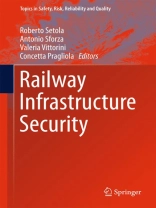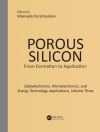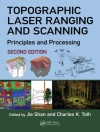This comprehensive monograph addresses crucial issues in the protection of railway systems, with the objective of enhancing the understanding of railway infrastructure security. Based on analyses by academics, technology providers and railway operators, it explains how to assess terrorist and criminal threats, design countermeasures, and implement effective security strategies. In so doing, it draws upon a range of experiences from different countries in Europe and beyond. The book is the first to be devoted entirely to this subject. It will serve as a timely reminder of the attractiveness of the railway infrastructure system as a target for criminals and terrorists and, more importantly, as a valuable resource for stakeholders and professionals in the railway security field aiming to develop effective security based on a mix of methodological, technological and organizational tools. Besides researchers and decision makers in the field, the book will appeal to students interested in critical infrastructure protection.
Table des matières
The Railway Infrastructure Security.- Towards integrated railway protection.- The FSI experience.- Vulnerability assessment in RIS scenario through a synergic use of the CPTED methodology and the System Dynamics approach.- Cumana and Circumflegrea railway lines: a circle network in the western metropolitan area of Naples.- Coping with suicide bombing Israel railways security challenges 2000 – 2005.- Technologies for the implementation of a security system on rail transportation infrastructures.- A Model-Driven Process for Physical Protection System Design and Vulnerability Evaluation.- Optimal location of security devices.- The METRIP tool.- Optimizing Investment Decisions for Railway Systems Protection.- The Security into the Metro system: the Copenhagen Metro experience.
A propos de l’auteur
Roberto Setola is the head of the Complex System & Security Lab of the University CAMPUS Bio-Medico of Rome, Italy and the General Secretary of the AIIC (Italian Association of Critical Infrastructures’ Experts).
Antonio Sforza is full professor of Operational Research at University of Naples ‘Federico II”, Italy. His activity focuses on the context of continuous and discrete optimization models and methods, whose applications are mainly devoted to problems of urban traffic management, transportation planning, logistics and infrastructure protection.












